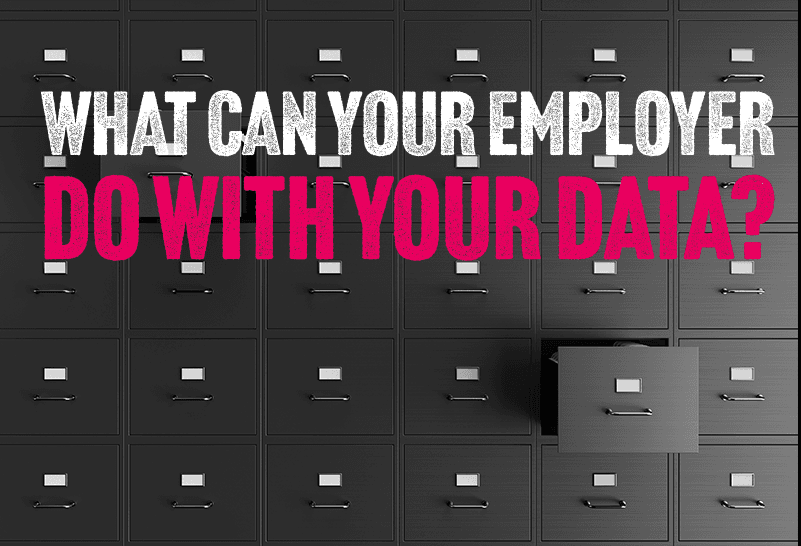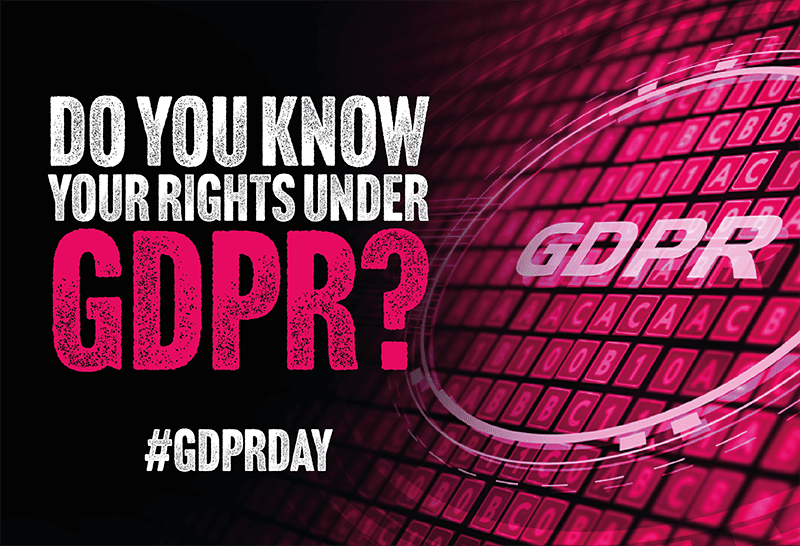- Blog
- Privacy
Why wasn't I hired?
It’s difficult not to take rejection from a job interview process, personally. Often, you’ll hear “sorry you weren’t successful on this occasion” and that leaves you none the wiser about why they made the decision. But you can find out more.By Rightly
3 min read

We could all use a little feedback when we hear back from a company that we didn't get the job we’d set our heart on. But so often you just get a standard message, and often nothing at all.
But if an organisation has gathered or created data about you, you have a right to know what it says. So if you want to know more about why you didn’t get that job, you can ask to see all the interview information they gathered about you.
Know your rights
The General Data Protection Regulation (GDPR) is a law that came into force in 2018 that gives individuals greater control over their personal data.
Personal data is any information that allows a person to be directly, or indirectly, identified, such as a person's name or ID number. For example, an email or a filed paper copy of a document involving your name combined with any comments about you would count as your personal information.
Under GDPR, you have the right to access your data. That means you have the right to access and receive a copy of your personal data, and any other supplementary information and you can do it by sending any organisation a Subject Access Request (SAR).
Typically, this right is exercised by individuals who want to understand how and why organisations are using their data, and check they are doing it lawfully. But this right can also extend to sending a SAR to a potential employer for their interview notes about you.
So, if you want to find out exactly why you weren't hired for the job, you should be able to access internal scoring sheets, application criteria and interview notes. In one case we know of, the interview notes revealed some eye-catching comments like:
- ‘extremely articulate but show-offy’
- ‘brilliant but exhausting’
- ‘prone to slightly pretentious references’
Ouch!
Useful feedback
You may want to mentally prepare yourself for potential unsavoury comments. But this type of information, how you come across beyond your academic or professional achievements, is invaluable: it's likely unattainable any other way and could be the difference between getting hired or not for future roles.
Job searching takes up a lot of time and energy. Exercising your right of access under GDPR to gain accurate interview feedback could be the invaluable information you need to help tackle your weaknesses. Remember, you have the right to access any personal information a company holds on you.
We recommend asking for interview feedback within 24 hours of receiving a rejection notice. But, if a company cites ‘lack of resources’ as a reason for not giving you feedback, or if you think the feedback you receive is too vague or something may be missing, you have nothing to lose by sending that company a SAR.
How do I send a SAR?
You can send SARs to companies on your own by emailing them, or you can use the Rightly platform. Our platform allows you to send multiple SARs at once to any company and view the information securely. It's quick, easy-to-use and completely free!
Find out exactly where you went wrong during an interview by searching for the company and sending a request.
Keep your data close
Also remember that you can get all the data deleted that a company has on you. The easiest way to find out who has data on you and to get it deleted is to use Rightly Protect. It’s quick, simple and free.
Related Articles
- Blog
6 min read

What can your employer do with your data
Employers hold a lot of information on employees and they should follow good practice to make sure they are only capturing what they need and that employees understand what happens to their data.
- News
5 min read

Your rights and GDPR 4 years on
As we near the fourth anniversary of GDPR, we ask what it is, and has it done what it was supposed to do? Are we better protected now or has the introduction of the GDPR been a damp squib? Despite GDPR, should we take precautions to prevent data loss?